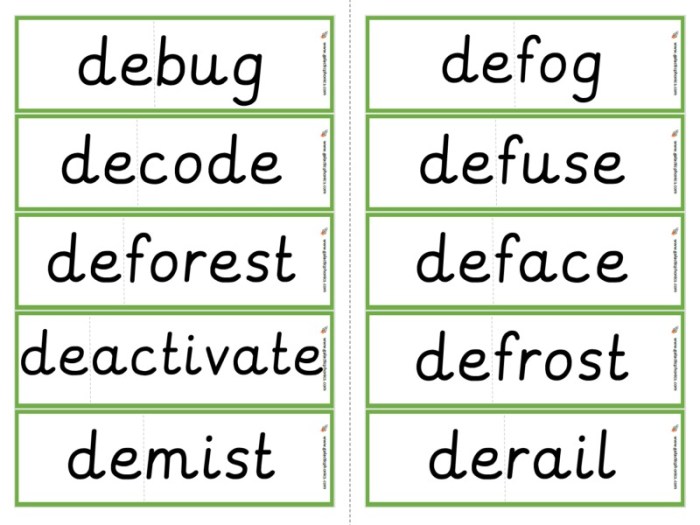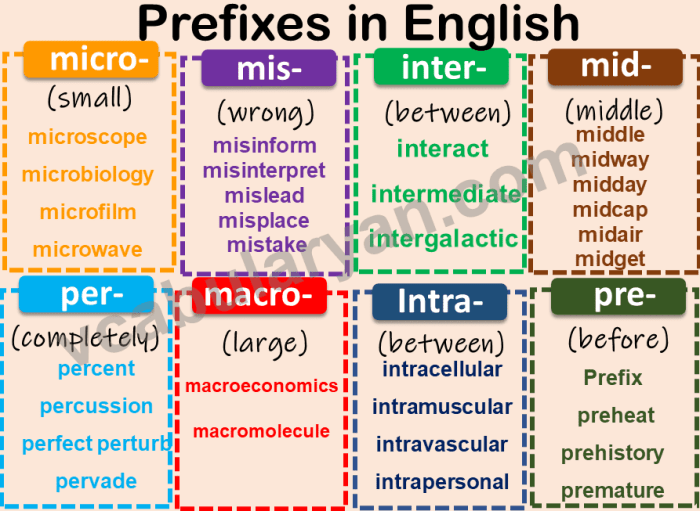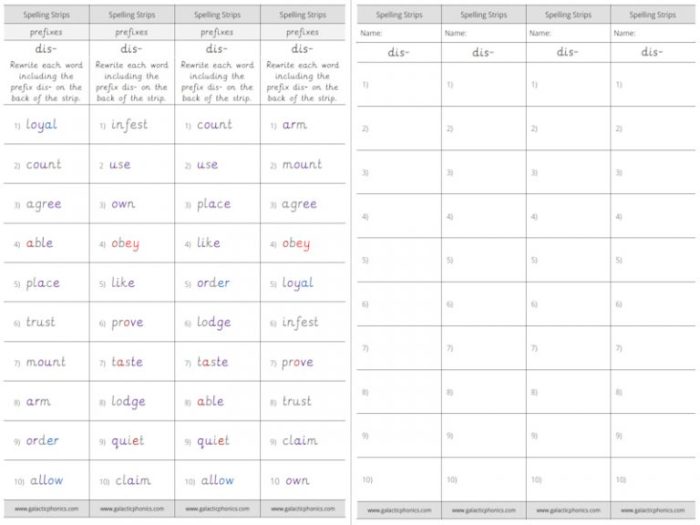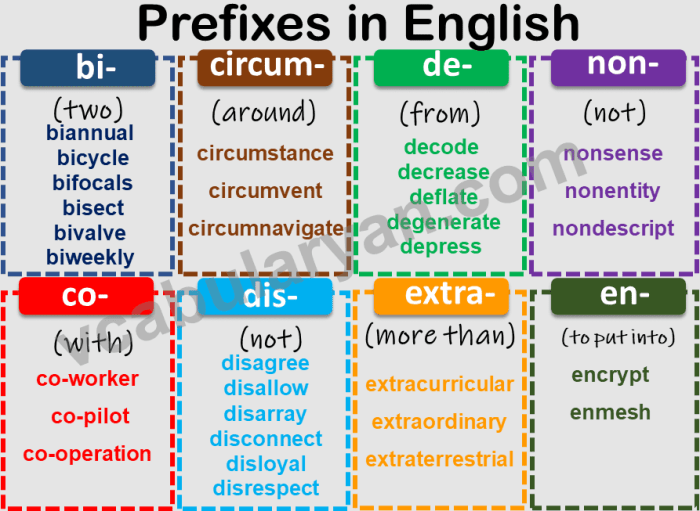Words with the prefix duc – As words with the prefix “duc” take center stage, this opening passage beckons readers into a world of linguistic exploration. From its Latin origins to its diverse usage in various languages, “duc” unravels a rich tapestry of meaning, inviting us to delve into its captivating semantic field.
Prepare to embark on a comprehensive journey as we dissect the etymology, categorize the parts of speech, and analyze the semantic nuances of words adorned with the “duc” prefix. Their metaphorical and symbolic meanings will unfold, revealing the profound impact they have on language and culture.
Etymology of “duc”: Words With The Prefix Duc

The prefix “duc” originates from the Latin word “ducere,” meaning “to lead.” This Latin root has significantly influenced various languages, giving rise to a range of terms related to leadership and authority.
Evolution of “duc” in Various Languages
In many Romance languages, “duc” has evolved into forms such as “duce” (Italian), “duc” (French), and “duque” (Spanish), all retaining the meaning of “leader” or “duke.” In English, the prefix “duc” is commonly found in words related to leadership, such as “duke,” “duchess,” and “ducal.”
Words with the prefix “duc” are often related to leading or guiding. For example, the word “duke” refers to a leader of a duchy. Interestingly, laws can also guide us, such as the ley car seat puerto rico , which ensures the safety of children in vehicles.
Returning to words with the prefix “duc,” we find “duct,” which refers to a passage for air or liquid. These examples showcase the diverse meanings associated with the prefix “duc,” highlighting its role in guiding and facilitating various aspects of our lives.
Relationship between “duc” and Other Prefixes
The prefix “duc” shares a connection with other prefixes like “duke” and “duchess.” The term “duke” originally referred to a military leader in the Roman Empire, while “duchess” denoted the wife or female equivalent of a duke. These terms reflect the historical association between “duc” and positions of authority and leadership.
Words with the Prefix “duc”

The prefix “duc” is derived from the Latin word “ducere,” which means “to lead” or “to draw.” It is commonly used in English to form words related to leadership, guidance, and drawing.
Nouns
- Duke(dyook): A male ruler of a duchy, typically ranking below a king or emperor.
- Duchess(duch-ess): The wife or widow of a duke.
- Duchy(duch-ee): A territory ruled by a duke or duchess.
- Duet(dyoo-et): A musical composition for two performers.
- Duodenum(dyoo-oh-dee-num): The first part of the small intestine.
Verbs
- Deduce(dee-doos): To arrive at a conclusion by reasoning or inference.
- Induce(in-dyoos): To persuade or influence someone to do something.
- Reduce(ree-dyoos): To make something smaller, less, or weaker.
- Seduce(se-dyoos): To attract or tempt someone into doing something, often sexual.
Adjectives, Words with the prefix duc
- Ductile(duk-til): Capable of being drawn out into a thin wire.
- Ducal(dyoo-kul): Relating to a duke or duchy.
Semantic Analysis of “duc”

Words with the prefix “duc” often carry connotations of leadership, guidance, and authority. They share a semantic field that revolves around the idea of leading, directing, or influencing others.
The prefix “duc” is derived from the Latin word “dux,” meaning “leader” or “commander.” This root meaning is reflected in many of the words that incorporate it, such as “duke,” “duchess,” and “duce.” These terms all refer to individuals who hold positions of authority and responsibility.
Metaphorical and Symbolic Meanings of “duc”
Beyond its literal meaning, the prefix “duc” can also take on metaphorical and symbolic significance. In some contexts, it can represent the act of guiding or directing a group or organization. For example, a “conductor” leads an orchestra, while a “director” oversees a company or institution.
Additionally, “duc” can symbolize authority, power, and control. A “dictator,” for instance, is a ruler who wields absolute authority. Similarly, a “duke” is a high-ranking nobleman who possesses significant power and influence.
Usage of “duc” in Literature and Media

Words with the prefix “duc” appear in various literary works and popular culture, contributing to the richness and depth of language. Their usage conveys specific meanings and nuances, shaping the tone and style of language in unique ways.
Literary Works
In literature, “duc” prefixes enhance the language’s formality and elegance. For instance, in Jane Austen’s “Pride and Prejudice,” the term “duchess” reflects the character’s high social status and influence. Similarly, in William Shakespeare’s “Hamlet,” the use of “dukedom” adds a sense of grandeur and nobility to the play’s setting.
Popular Culture
In popular culture, words with the prefix “duc” often convey authority and leadership. For example, in the movie “The Lord of the Rings,” the character Gandalf is referred to as “Gandalf the White” after his transformation, emphasizing his increased power and wisdom.
In the television series “Game of Thrones,” the title “Duke of Winterfell” signifies the character’s status as the ruler of a significant territory.
Cultural and Historical Significance of “duc”

Words with the prefix “duc” have played a significant role in shaping cultural identity and heritage across various civilizations and epochs. The prefix, meaning “leader” or “chief,” has been incorporated into heraldry, mythology, and other cultural practices, leaving an enduring legacy in shaping cultural narratives and traditions.
Heraldry
In heraldry, “duc” was used to denote a noble rank, typically associated with a duke or duchess. Ducal coronets, elaborate headpieces adorned with precious stones and pearls, were symbols of authority and prestige. The prefix “duc” in heraldry signifies the bearer’s high status and noble lineage, reflecting the aristocratic values and social hierarchy of medieval society.
Mythology
In mythology, “duc” has been used to describe powerful and influential figures. For instance, in Roman mythology, “dux” was a title given to military leaders, such as Julius Caesar, who led the Roman legions to victory. In Celtic mythology, “duc” was associated with supernatural beings, such as the “duc sidhe,” leaders of the fairy realm, who possessed extraordinary powers and wisdom.
Cultural Identity and Heritage
Words with the prefix “duc” have contributed to the formation of cultural identity and heritage. In many cultures, dukes and duchesses have been seen as symbols of tradition, lineage, and continuity. Their presence in heraldry, literature, and art has helped shape cultural narratives and create a sense of belonging and shared history.
The prefix “duc” thus serves as a reminder of the rich tapestry of cultural traditions and the enduring legacy of leadership and nobility.
Common Queries
What is the etymology of “duc”?
The prefix “duc” originates from the Latin word “ducere,” meaning “to lead” or “to guide.”
How is “duc” used in different parts of speech?
“Duc” can be found in nouns (e.g., duchess), verbs (e.g., induce), and adjectives (e.g., ductile).
What are some common themes associated with words containing “duc”?
Words with “duc” often convey ideas of leadership, guidance, and movement.
